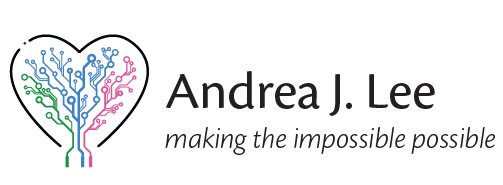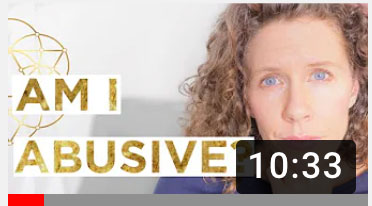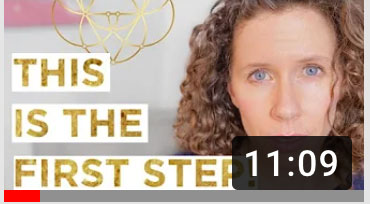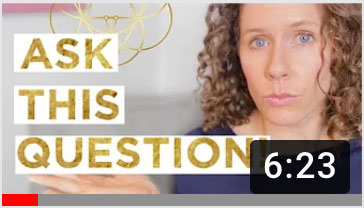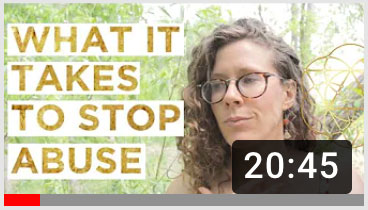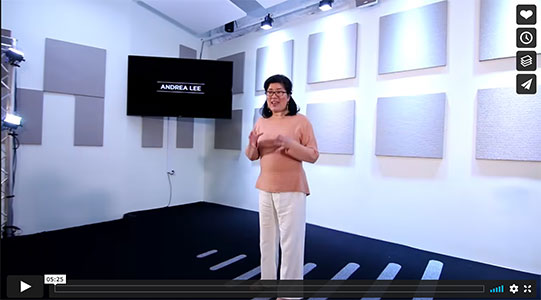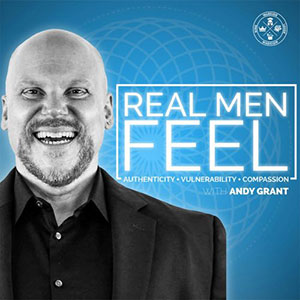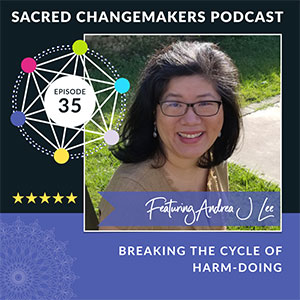Yes, You Can Stop HURTING THE PEOPLE YOU LOVE
Finally, a safe place to figure out how to stop being verbally, emotionally or psychologically abusive – from someone who’s been where you are.
“Your writing helped me have my aha moment. Facing my abusive behaviour *gulp* I am literally in tears having found you, your perspective.
Thank you for conveying a lifeline, an edge of hope for those of us who recognize our destructive behaviour and want to change.”
Time to let the cat out of the bag. In October 2018, I published an article called “I verbally abused my husband: Here’s how I stopped” in the Washington Post.
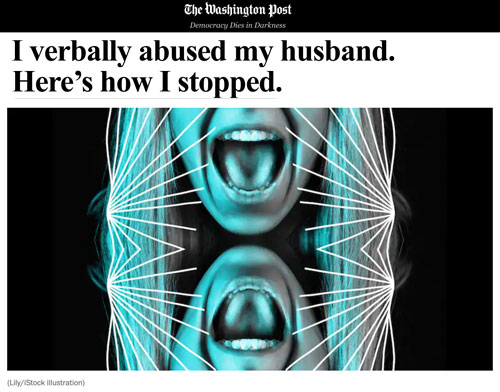 In the article, I get really personal about what it was like to be an emotionally abusive person who wanted, with every fiber of my being, to stop hurting the people I love.
In the article, I get really personal about what it was like to be an emotionally abusive person who wanted, with every fiber of my being, to stop hurting the people I love.
You see, despite my parents best of intentions, I grew up being abused, and from that I learned to be abusive. I thought it was a good story to share because I had a hunch I wasn’t alone. Over 20 years, I’d seen and rejected or been rejected by countless therapists who didn’t treat abusers, only victims.
Of the many books about surviving as a victim of abuse, I couldn’t find even one for the abusive side of me and I looked for a decade.
And so despite wanting to change so very badly, I felt well and truly alone.
Desperate is a big word, but it’s the right one. I was desperate to figure out how to stop abusing my husband. Today, now that I’m on the other side, I know my road to getting better was far longer than it needed to be.
Since that article was published, it’s become clear there are a lot of us in the same boat. With hundreds of readers and millions of viewers of my Upworthy video, it’s obvious to anyone who’s looking that there’s a growing number of people worldwide who know they’re being abusive and many of them (you?) really want to stop.
Maybe you relate. Maybe you’re here because YOU really want to stop and – this is key – you COULD stop being abusive if you had some help.
To learn more in a simple, easy-to-access way, you can visit my Stop Being Abusive blog for an archive of articles and resources. Or, you can watch Stop Emotional Abuse, a series of powerful YouTube interviews put together by Karen McMullen, Author of Alchemy of Consciousness and Human Design expert.
These are both excellent ways for you to dip your toes in and get engaged with this work on your own, for free or very low cost.
The following are a few of the notes I’ve received which I share with you with names kept private so you can see with your own eyes – you’re not alone. There’s help to be had that’s specifically for you and what you’re experiencing.
“I realize what I’ve done. I realize the pain they’re in. I know where my behaviors stem from. I fear I can’t be fixed but I’m determined to halt and teach my kids what I did was not right.”
“I love my husband dearly and want to stop the verbal abuse – I feel just terrible – when it comes up in me I feel like another person.”
“Please share more of your recovery with me – I need the help and understanding of someone who knows what it’s like, someone who won’t judge me.”
“Your article brought me to tears. It resonated with me as the abuser, thinking what I was doing was normal and unknowingly making my wife’s life horrible when I thought I was being the ‘man of the house.'”
Are you ready to dig in and meet regularly with a life and leadership coach who’s been where you are?
While I’m not a therapist, I am a trauma-aware coach with 20 years of coaching and supervision under my belt, along with the life experience of healing from emotional abuse, and emotional abusiveness. At the end of 2021, I’ll finish my Master’s Degree on emotional abusiveness, and I’ve been supporting clients to change their abusive behaviour 1-on-1 for the last four years.
It would be an honour to connect to see if you feel I could help you, too. Here are the four most common categories of people who reach out about 1-on-1 coaching:
I want to stop Hurting the People I love
“Emotionally Abusive” is hard to hear, but I’m tired of the fear and pain I’m creating in my relationships – it’s just not okay with me anymore.
I really want to change. Reading books is fine, but I want to get to the roots of this with someone who gets it. Can you help me?
I WANT TO HELP STOP THE ABUSE CYCLE
My partner is so traumatized from the past and is trying hard to change. I want to help! S/he hasn’t been abusive for a few months now. I just hope it lasts.
How can I help while taking care of myself?
I WANT to Stop Being The Mean Boss Or CoWorker
I thought I was doing okay until I found out the hard way people think I’m a bully and difficult to work with. I don’t know how else to relate, I guess.
How do I stop? And does this mean all my success is going to go down the drain?
I WANT TO BE DONE WITH THE A**HOLE BEHAVIOUR AROUND ME
I can hold my own most of the time, but I’m tired of dealing with jerks at work. How do I figure out a way to be okay within the situation if I have to be in it?
And how do I make sure I don’t turn into a jerk, too?
How it works: 1-on-1 coaching sessions
In 1-on-1 work, the main benefit is that everything is customized to you. This includes how frequently we meet, for how long, what we work on from call to call, the tools and exercises we design for you, your budget, etc. Most of the time, people who decide to work 1-on-1 have you specific, ambitious goals to stop their abusive behaviours completely. This can be a very exciting time, and I usually recommend we can be break that goal down smaller chunks.
Some ideas for what we can work on 1-on-1 include:
- Understanding your emotional pH level, a kind of self-check or ‘acidity test’ of where you are emotionally at any given time, so you can be proactive about your anger and prevent (stop feeling inevitable about) outbursts.
- Telling the truth about the harm you’ve done because being conscious of this – the pain your loved ones are in – is what will sustain you when things get hard.
- Creating new habits with what we know about addictive behaviour and how the brain works.
- Letting go of beliefs and stories that keep you feeling entitled, disrespected or hard done by.
- Examining what triggers you and sorting out how to get your needs met in healthy ways.
- Rebuilding relationships over time, including demonstrating your change is here to stay, learning to trust yourself again before asking for trust, and what to do about shame and forgiveness.
- Learning how to harness the positive power in your emotions and channel them towards productive activities (once you get here, this can be really exciting!)
- Deepening your sense of empathy and following through with it in your relationships.
- Exploring how to restore safety so you can create new experiences: peaceful, healthy and joyful.
If this feels like the moment for you to say yes to more actively stop your abusive behaviour, let’s step through that door together and chat.
I’m available for a confidential, no-fee conversation about where you are now on this journey, and how we might work together to get you where you want to go. You’ll have the chance to ask me questions, and we’ll honestly assess whether it makes sense for you to hire me as your coach.
If the answer is yes, we’ll talk logistics and budget, and schedule our first call! If the answer to working together is a no, I’ll make sure to leave you with some supportive next steps – that may be a referral to a book, a therapist, a group, or another combination that meets you exactly where you are!
““Andrea confronts difficult truths with compassion, humility, and grace. She is a gifted writer and gives me hope in our capacity to be human.”
A final thought: it all starts with commitment and awareness
As you become more conscious of how you behave in ways you don’t like, I celebrate you, and I hope you’ll do the most important thing: commit to change. Keep your awareness high! Tell the truth about what you’re going through and your struggles, even – especially – when it’s hard.
This world of ours has so much violence in it that’s a result of individuals not making the commitment to stop violence within themselves and their own homes. I hope you’ll join me in being a person who decides you’re going to do your part.
I really believe that we have no right to complain about violence out there, if we aren’t doing something about ‘in here’ – in our lives – where we have the power to change.
So thank you for reading, learning and committing. It matters. Every minute, every hour, every single day that you aren’t abusive – is worth it.
Got an idea for how to spread this message of change and the prevention of emotional abuse? This work needs everyone’s help and I’d love to hear from you.
“Spilled Milk Theory” is my pet concept for how we currently address violence in society and which really DOES NOT work. Below you’ll find a video and a couple of podcast interviews on the bigger picture of this topic for your interest:
I’m available for interviews, speaking engagements, and trainings about this and the topic of reducing and preventing emotional abusiveness. And I’d love to refer you to other experts as well.
*Looking for an experienced business and leadership coach to help you change the dominant culture in some way? I do that too, and sometimes all these topics combine in powerful ways. More info on the biz coaching side of things here.
TOGETHER WE CAN STOP HURTING THE PEOPLE WE LOVE
For tools, stories, encouragement and wisdom sign up for the free “Stop Being Abusive” newsletter.
Written by someone who’s been where you are and knows first-hand that with support, you can change.
